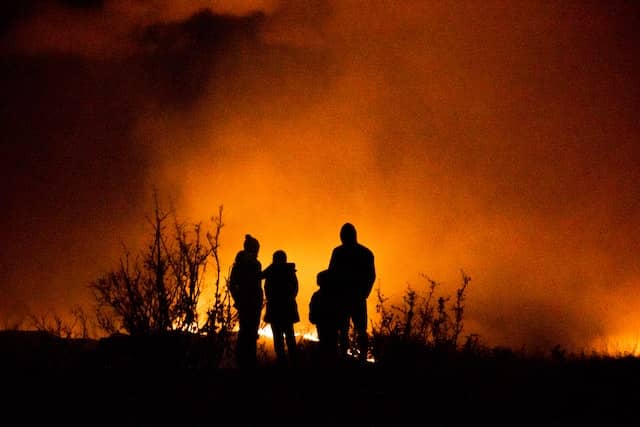Lord of the Flies is a classic novel by William Golding that explores the darker side of human nature and the power dynamics between individuals. But how does Lord of the Flies end? The novel’s conclusion is particularly noteworthy as it ties together the themes of power, violence, and civilization that run throughout the book. In this article, we will delve into the details of the ending of the Lord of the Flies and explore its significance.
How does Lord of the Flies end? (Complete Answer)
The Lord of the Flies explores the darker side of human nature and the power dynamics between individuals. But how does Lord of the Flies end? The novel has captivated readers for decades with its thought-provoking themes and gripping conclusion. In the final pages of Lord of the Flies, Ralph finds himself in a desperate situation as he runs through the jungle, trying to escape both Jack and his pack of savage boys and the fire that Jack has set on the mountain.
As Ralph emerges onto the beach, he is discovered by a British Naval officer who has come ashore after seeing the burning island from his ship. This encounter marks the end of the boys’ savage existence on the island and their return to civilization. The arrival of the outside world serves as a reminder of the importance of civilization and order. Ralph, who has tried to maintain a sense of morality and order throughout the novel, is finally rescued and returned to society.
The conclusion of the Lord of the Flies raises important questions about human nature, power, and the role of government. The novel portrays the dangers of allowing power to fall into the hands of a few individuals who have no regard for the well-being of others. Through the characters’ experiences in Lord of the Flies, Golding shows how the absence of a governing body can lead to chaos and violence. The arrival of the British Naval officer serves as a reminder of the importance of a strong, stable government and the dangers of a society without rules and order.
Who survives in Lord of the Flies at the end?
At the end of Lord of the Flies, everyone except for the pilot, the parachutist, the Kid with the birthmark, Simon, and Piggy survives. However, their rescue comes at a significant cost, as they have lost some of their friends to violence and savagery. The novel serves as a cautionary tale about the dangers of group dynamics and mob mentality in extreme situations.
What is ironic about the ending of Lord of the Flies?
The ending of Lord of the Flies is filled with irony. On the one hand, the boys are rescued by a naval officer who appears to be their savior. However, this rescue is bitter-sweet because it highlights the fact that they were unable to save themselves and had resorted to savagery on the island. This irony is further compounded by Golding’s portrayal of the naval officer as a symbol of civilization and order, which stands in stark contrast to the chaos and brutality that has occurred on the island. Despite being saved, there is no denying that the boys’ experiences on the island have changed them forever. Thus, while there is a glimmer of hope at the end of Lord of the Flies, it is clear that this hope comes at a great cost and does not erase what has happened on the island or its impact on those who survived.
What is the last sentence of the Lord of the Flies?
The last sentence of Lord of the Flies is, “Ralph wept for the end of innocence, the darkness of man’s heart, and the fall through the air of a true, wise friend called Piggy.”
Conclusion
In conclusion, the ending of Lord of the Flies is both poignant and thought-provoking. The arrival of the British Naval officer marks the end of the boys’ savage existence on the island and the return to civilization. The novel’s conclusion raises important questions about human nature, power, and the role of government, making it a must-read for anyone interested in these topics. Whether you are a fan of classic literature or just looking for a thought-provoking read, Lord of the Flies is a book that will stay with you long after you have finished reading it.
